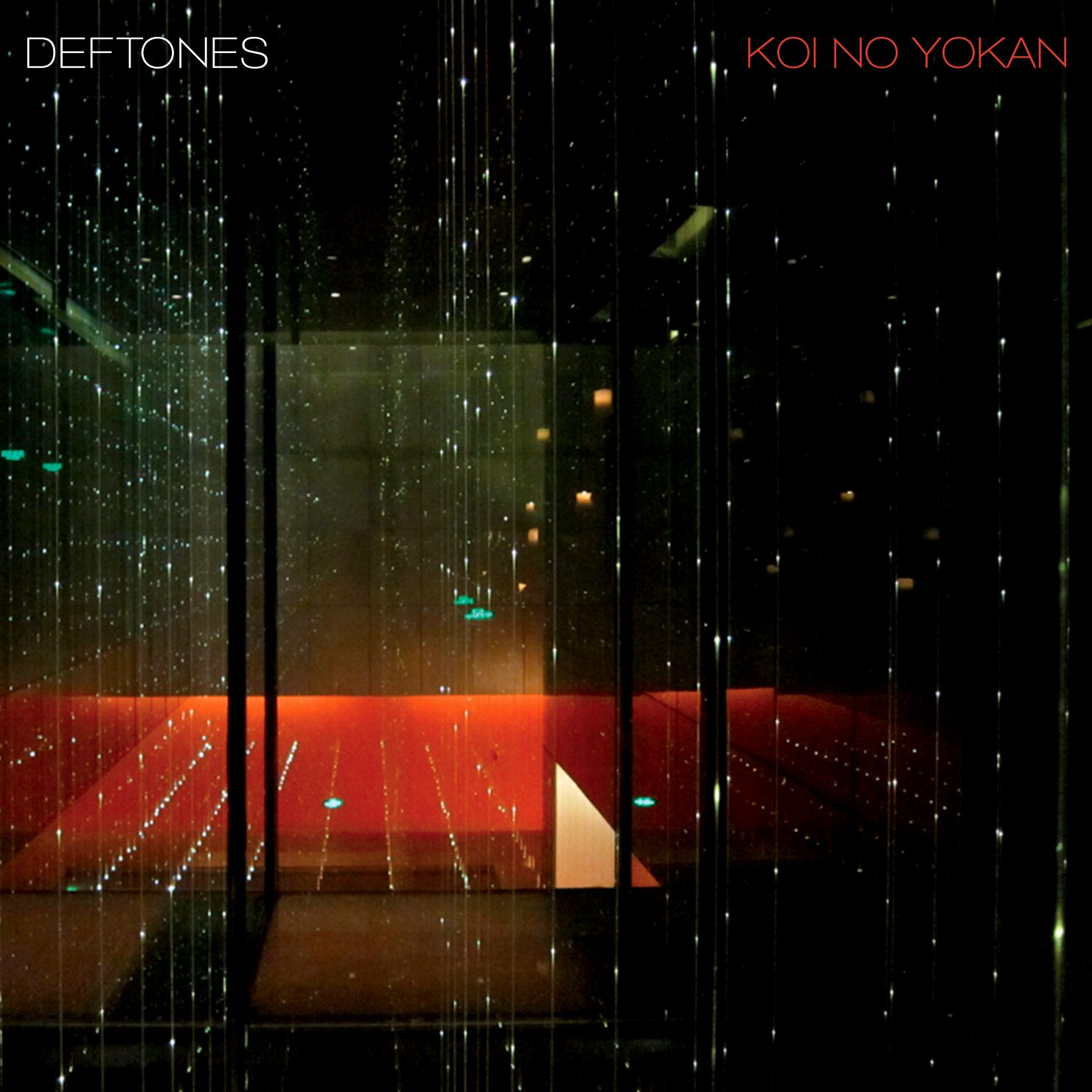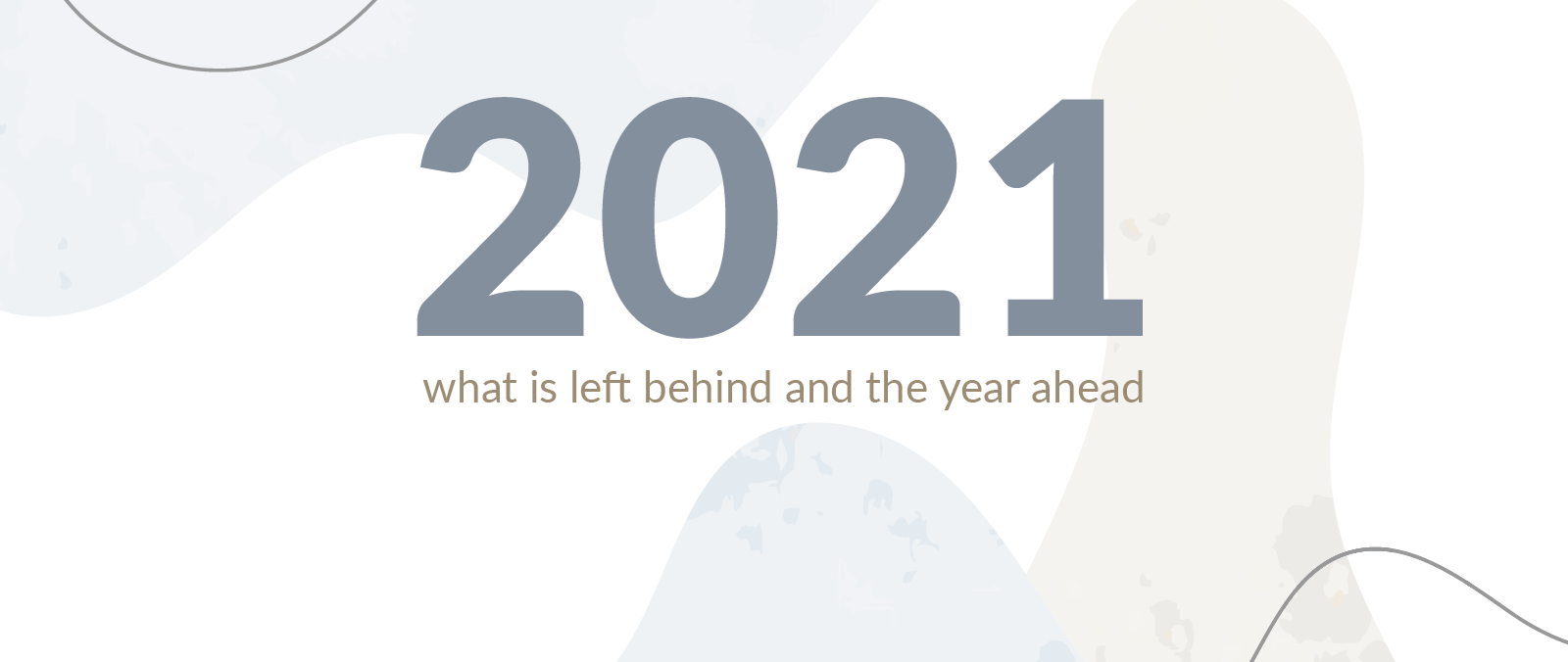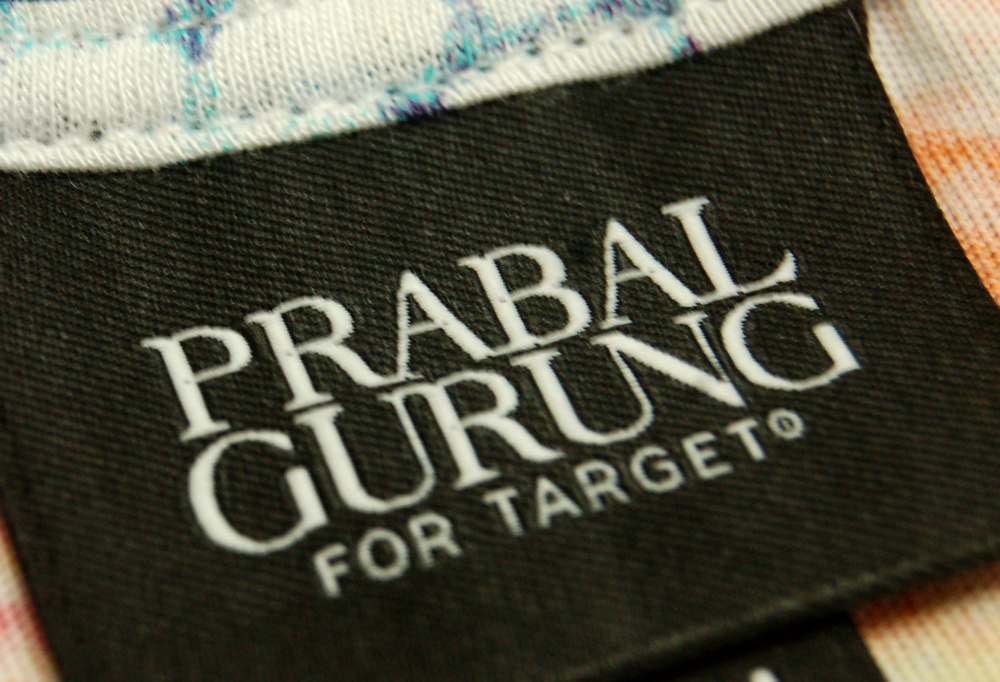For a couple years I have thought about being a vegetarian, but I always said I would start “sometime in the future”. For over two years I have cut beef from my regular diet, I rarely eat pork and until recently I had never even tried lamb. The main sources of animal protein in my diet come from chicken, fish, and seafood. Since I don’t believe in diets, I usually don’t eat sugar, wheat or processed products, my pick for a dietary restriction was very clear. I chose lacto-ovo-vegetarian, as it would be easy and it would allow me to have baked goods, which I am a big fan of.
Typical menus
Since I didn’t have too much time to cook and prepare for this diet, my typical menu wasn’t as varied as I would like it to be. Nonetheless, I made sure I was having enough protein and combining food correctly to keep a balanced diet.
Breakfast/ Morning Snack
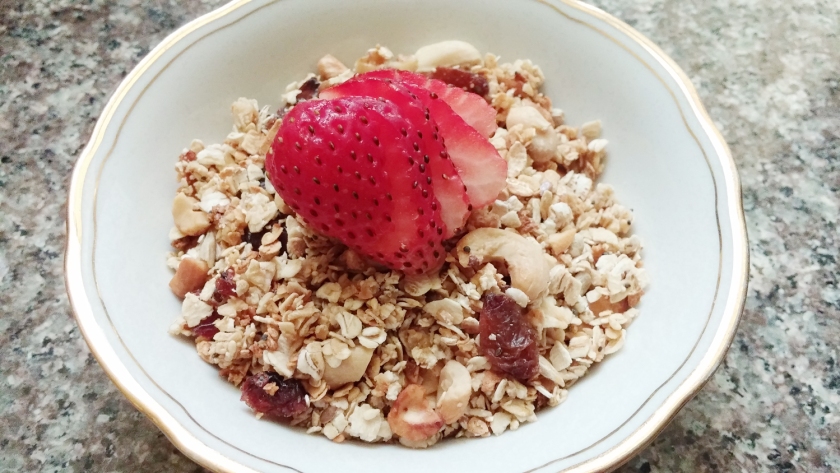
- Oats/Granola
- Nuts
- Fruit
Lunch

- Legumes + grain OR
- Pasta + protein
- Salad
Afternoon/ Night Snacks
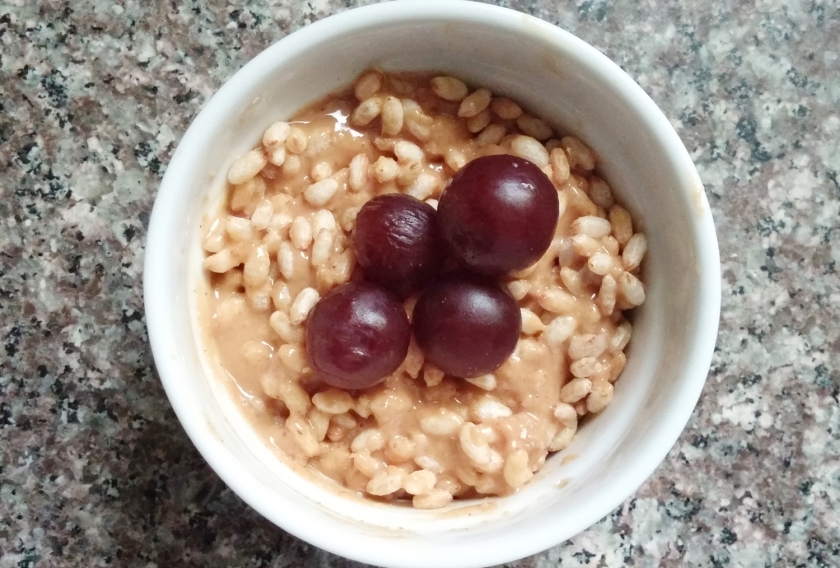
- Grain + protein OR
- Baked good OR
- Nuts
- Fruit
Dinner

- Bread + protein
- Baked good
- Fruit
- Smoothie (fruit + dairy)

Overall I didn’t change much of my diet. I incorporated tofu and eggs to what I usually eat. I also had a lot more of quinoa (as a grain and as a flour), as it is a complete protein, to help me meet my proper daily protein intake.
Below is a recipe I created with the few ingredients I had at the moment but it turned out very tasty and I will surely work on perfecting it.
Brown Rice Spaghetti with Ricotta and Tofu
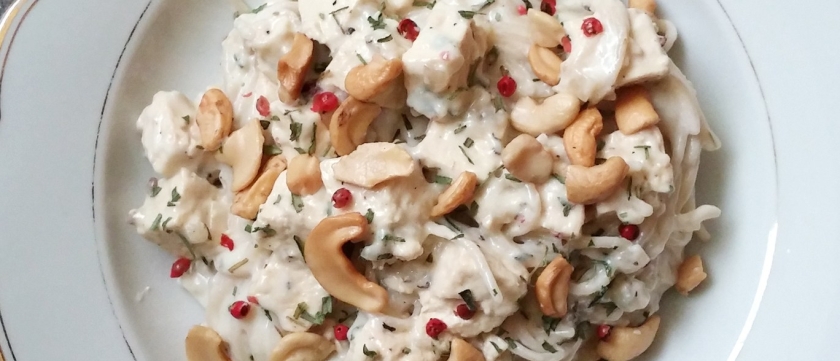
The key to this vegetarian recipe is that it combines a legume (soy) and a grain (brown rice) to supplement all necessary amino acids to our body. It also includes tofu, rich in calcium and iron and ricotta, rich in calcium. The deficiency of these two minerals is very common among vegetarians and this recipe alone offers almost half the necessary daily calcium intake.
Since I created the recipe as I was doing, the measures are only approximate and might need to be adjusted.
Ingredients
- 100g Brown rice spaghetti
- 1 Shallot, brunoise
- 1 Garlic, minced
- 2 tbsp Extra virgin olive oil
- 1 tbsp Vegetable oil
- 100g Tofu, medium dice
- 2 tbsp Ricotta
- 2 tbsp, Cashews, toasted and roughly chopped
- Tarragon, to taste
- Pink peppercorns, to taste
- Salt, to taste
- White pepper, to taste
Method
- In a pot, boil water and salt.
- Once the water boils, add pasta and cook according to the instructions. Since this paste is made of rice, I suggest rinsing it before cooking to remove some of the starch otherwise it can become very sticky.
- After it’s cooked, drain it, add the olive oil and reserve.
- Toast cashews. Reserve it.
- Heat up a pan, add the vegetable oil and sweat the shallot and the garlic.
Add the tofu and cook it until golden brown. - Add tarragon, pink peppercorns, salt, and pepper.
- Add the ricotta to the pasta and mix it until the olive oil/ricotta mixture achieve a sauce-like texture (you can add more olive oil or water if it is too thick). Adjust the seasoning.
- Add the tofu mix to the pasta.
- Put it on a plate and garnish it with tarragon, pink peppercorns, and cashews.
Daily Diary
Day 1 – Monday
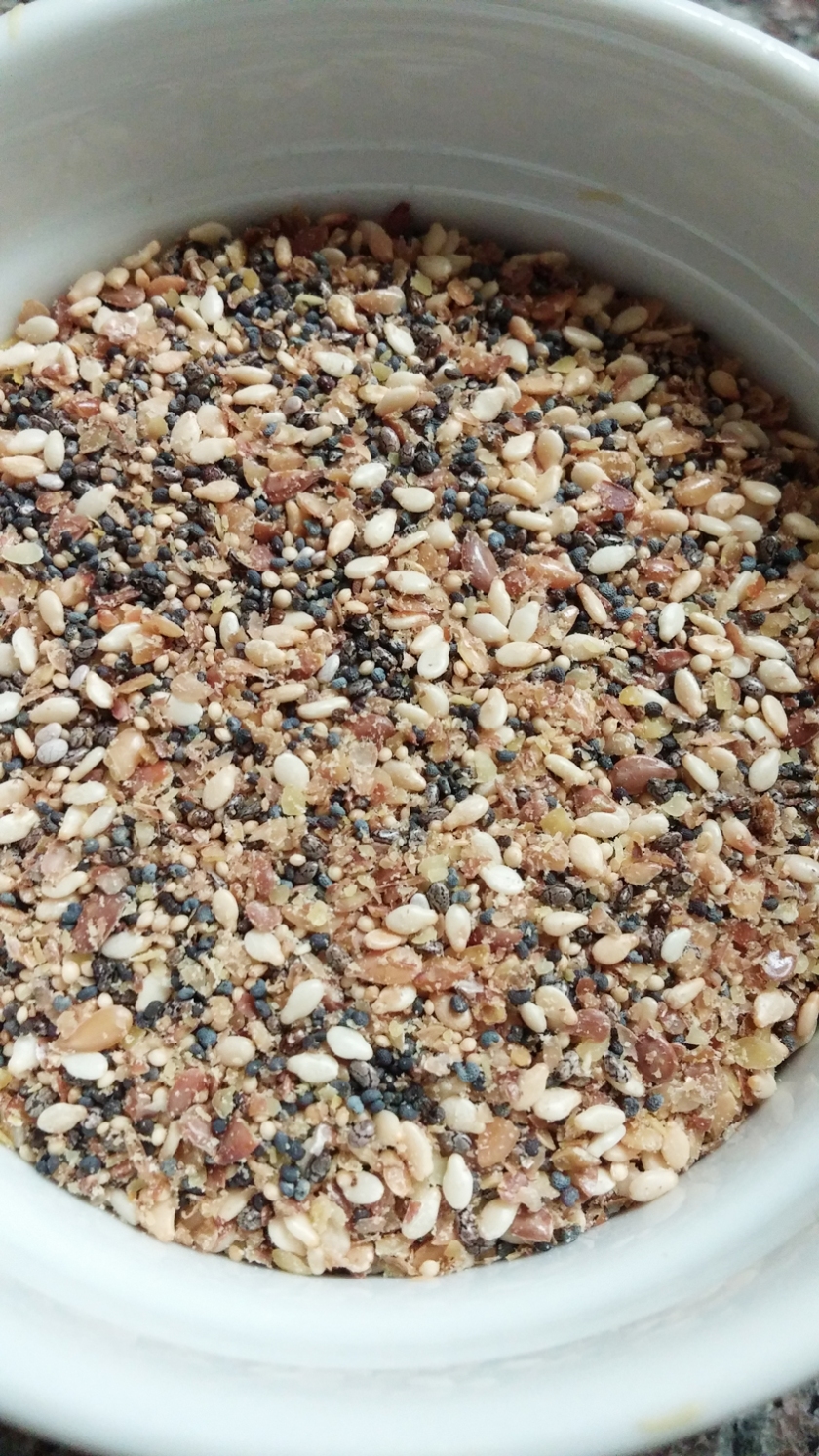
My focus on day 1 was reading about protein-rich foods that would keep my diet well balanced. I was surprised to find that many of the suggestions such as quinoa, peanut butter, chia, nuts, seeds, cocoa powder, legumes, and grains are already a big part of my diet, so I would only need to do a few adjustments.
It was very interesting to find that mixing legumes with whole grains will provide all essential amino acids. I knew this was true for rice and beans, but it is also true to simple mixes, such as whole wheat bread and peanut butter.
Day 2 – Tuesday
What I felt the most on day 2 was the lack of vegetables. I didn’t have the time to buy vegetables over the weekend, and with that, I felt hungry very soon after I’ve eaten. I created a recipe and was very happy with the outcome. Although it was almost entirely improvised and created as I was making it, it had a key element that is the combination of grain and legumes, and it was also very tasty.
I created a recipe and was very happy with the outcome. Although it was almost entirely improvised and created as I was making it, it had a key element that is the combination of grain and legumes, and it was also very tasty.
Day 3 – Wednesday
I was fine at this point. The only thing I noticed is that I was eating more. I was hungry more often, but at the same time, I did not gain any weight. In fact, I think I might have lost some fat, as I could see a few muscles in my body that weren’t as apparent in the previous week, probably because I am finally eating the proper amount of protein.
Day 4 – Thursday
Today I went on the diet a little. The lab was on seafood which I love, and I had to try for presentation. What I noticed was that the days I have labs are the days I have the most unbalanced meals. I end up skipping breakfast, I have lunch very early and I can’t eat again until after 5 p.m. when the class is over. When I get home I will fill myself up with whatever I can find, or eat a very little of something and go to bed.
I had already noticed how having labs in the afternoon messed my routine, but this week, when I paid close attention, this was even more evident. I had two meals during the whole day and that is not healthy.
Day 5 – Friday

I prepared chicken and I had to try it for seasoning. But even though it was really good, I didn’t feel like eating it. I was totally fine knowing that I wouldn’t be able to eat it for two more days. I honestly thought I would be craving proteins by day 5, but I was fine.
Day 6 – Saturday
Working during the weekends makes it easier to be vegetarian. I usually have something that was extra from my station, which basically is appetizers, salads, and desserts, so animal protein wasn’t going to be a problem for me. Since I had time to eat during the day I wasn’t so hungry when I got home at night, so I didn’t have any cravings or crazy meals.
Day 7 – Sunday
The last day was the easiest. For one it was Summerlicious and I barely had the time to eat at work. Luckily I had cooked for the week, so I had lots of vegetarian options for dinner. Overall it was a great experience and it pushed me to pay more attention and be more creative with my meals.
The Results
I really thought that being vegetarian would be hard, but it turned out to be very easy. The only day I felt it was day 4 during seafood during class, as I love seafood. But it wasn’t anything crazy. Would I like to eat it? Yes. But I was totally fine not eating it. I believe that after you quit eating sugar, everything else is easy.
Something I noticed was that I paid more attention to my snacks. I increased my consumption of nuts and seeds, and I was able to incorporate them into my main meals. This not only added important nutrients but also was very important for texture, which in my opinion is the hardest thing when you don’t have animal protein in a meal.
For me, it wasn’t very hard to maintain my dietary choice, even though I was in culinary school and I work at a restaurant. Of course, I had to try my dishes, as I needed to be aware of what I was presenting to the chef professor, but overall it was much easier than I thought it would be.
My diet is very balanced, so I didn’t have to make any major changes, except cut animal meat from lunch and dinner. I believe that if you maintain a healthy and balanced lifestyle and diet, it isn’t very hard to maintain your dietary choices. I also believe that if you are a chef or a cook trying something that will be presented to someone isn’t considered cheating on the diet, as it is a part of your job to know what you are serving to the customer.
My main tips for someone who is thinking of following any type of diet is the same (I follow this to keep away from wheat, sugar and processed food):
- Keep a balanced diet
- Plan your meals
- Have options available
- Be creative
I also believe this was a great experience for me as a future chef, to put myself in the position of a customer with a big dietary restriction. I think it is very important to respect people’s dietary choices and see food from another point of view.
My current situation makes it hard to be strictly vegetarian, especially at work and at school. But if I had a more established routine, and were further in my career and life, I believe I would continue with this choice. I didn’t have any side effects or cravings and I know I am entirely sure that it is possible to maintain a healthy lifestyle being vegetarian.

